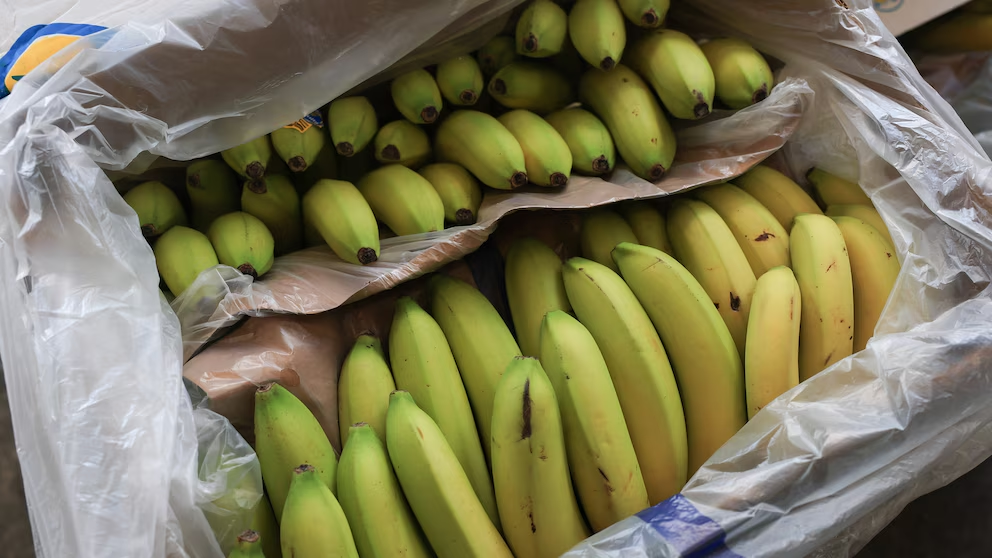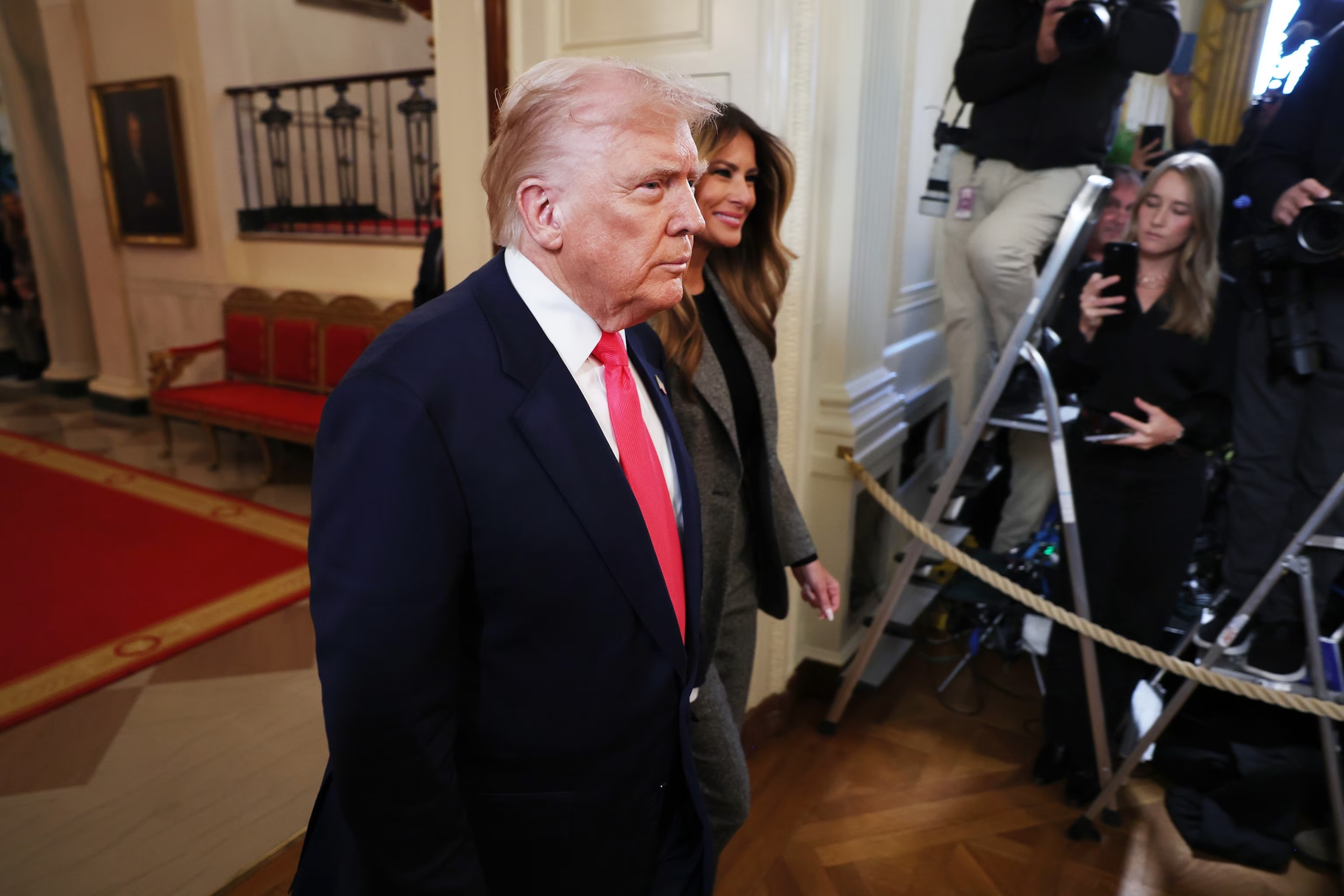“1:03Bananas sit in a crate at the National Produce Fruit and Vegetable store on November 14, 2025 in Miami. The Trump administration is reportedly working on tariff-free agreements for some South and Central American countries that could lead to lower tariffs on some goods, hoping that would lower the cost of certain products.Joe Raedle/Getty Images Senior […]”, — write: businessua.com.ua

1:03Bananas sit in a crate at the National Produce Fruit and Vegetable store on November 14, 2025 in Miami. The Trump administration is reportedly working on tariff-free agreements for some South and Central American countries that could lead to lower tariffs on some goods, hoping that would lower the cost of certain products.Joe Raedle/Getty Images
The framework agreements with Argentina, Guatemala, El Salvador and Ecuador will eliminate taxes on some goods from those countries, which currently face a single tariff rate of 10 percent to 15 percent, a senior administration official told reporters on background talk.
But they added that the White House expects “some positive price impact” on products such as coffee, cocoa and bananas.
As of September, coffee prices jumped 18.9%, bananas jumped 6.9% and beef prices rose 14.7% last year, data from the U.S. Bureau of Labor Statistics showed.
Experts who spoke to ABC News said the tariff cuts could help slow or even reverse rising prices for some commodities, such as bananas and coffee, because the U.S. does not produce those goods domestically. But, they cautioned, the recent rise in prices for these commodities is partly due to a global supply shortage, meaning that tariff adjustments will have limited impact on prices.
Beef, sourced mostly from U.S. ranchers, is expected to see little, if any, price change as a result of the tariff cuts because the policy is aimed at imports, they added.
“The removal of these tariffs will have some impact, but consumers should not expect a significant drop in prices,” Jason Miller, a professor of supply chain management at Michigan State University, told ABC News.
Coffee, for example, is an example of a challenge that arises when the price rises.
The spike in coffee prices comes down to a supply shortage due to extreme weather combined with high demand, meaning too many dollars chasing too few coffee beans, experts

Donald Trump and Melania Trump arrive for the signing ceremony for the Future Development Executive Order in the East Room of the White House on November 13, 2025 in Washington, DC. Anna Moneymaker/Getty Images
Trump’s tariffs likely exacerbated those price increases, Miller said, adding that the fee reductions could help mitigate some of the additional costs. But there’s a catch, he added: None of the countries targeted for tariff relief under the new framework agreements are among the largest exporters of coffee to the U.S.
Brazil is the top source of coffee for US buyers, followed by Colombia and Vietnam; but the tariffs for these countries remain unchanged.
“Until we hear mention of Brazil, I wouldn’t worry,” Miller said.
According to some experts, the price cut will most likely hit bananas. Guatemala and Ecuador, two of the largest exporters of bananas purchased in the United States, are among the countries designated for tariff exemptions. Guatemala alone exports more than a quarter of the bananas consumed in the U.S., Michael Sposi, an economics professor at Southern Methodist University, told ABC News.
Potential savings from lower tariffs could be boosted by improved supply. Weather conditions and plant diseases caused the global supply of bananas to shrink earlier this year, driving up prices. But world prices for bananas have fallen in recent months.
Bananas peaked at an average of $1,250 a metric ton in February but fell to $950 as of June, the latest month on record, according to an analysis by the St. Louis Federal Reserve System based on International Monetary Fund data.
“Bananas are the most direct price increase we’ve seen in the U.S. due to tariffs,” Miller said. However, he predicts the price may only fall by “a couple of cents” as grocers may try to hold on to profits if buyers keep up demand.
Beef prices make up a bigger share of the typical shopper’s spending than bananas or coffee, but the cost has little to do with tariffs, some experts said. American cattlemen make up the vast majority of beef bought in the US, leaving little room for tariff-induced price swings.
“This category is much tougher than the others because the others don’t have a domestic industry,” Tyler Schipper, an economics professor at the University of St. Thomas, told ABC News.
Schipper pointed to cattle shortages and potential industry factors driving up beef prices, not tariffs.
“Understanding pricing in this industry is different and more difficult than these other commodities,” Schipper said.
ABC News’ Elizabeth Schulze, Isabella Murray, Hannah Demissy and Michelle Stoddart contributed to this report.
Source: abcnews.go.com
Please wait…
